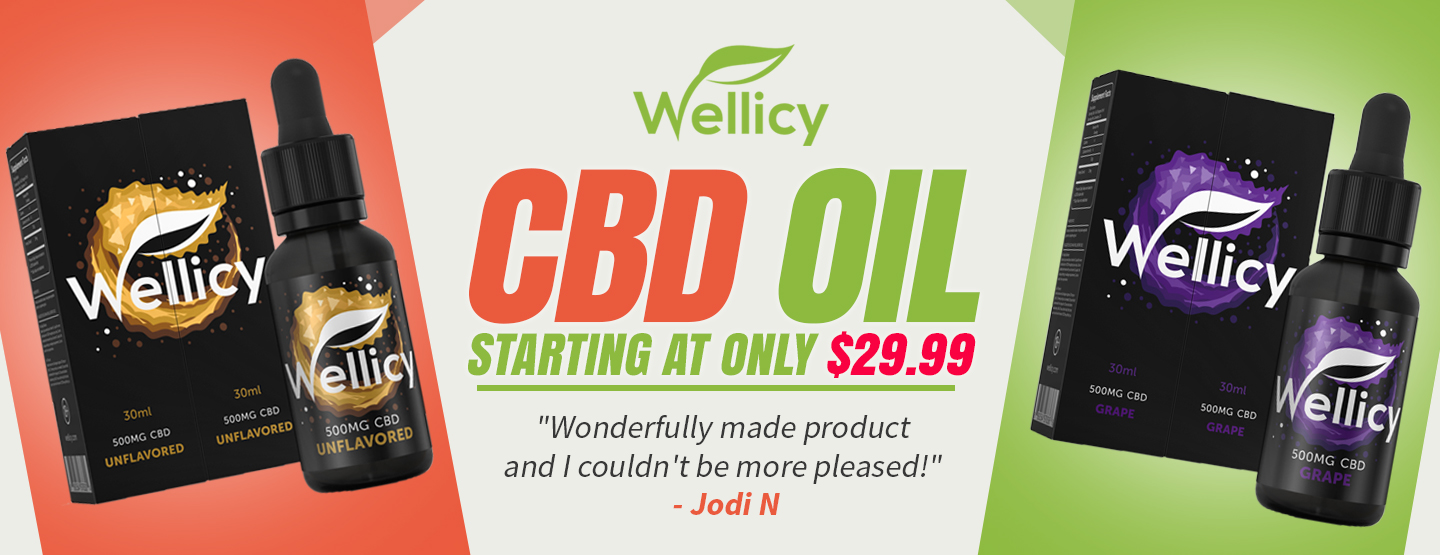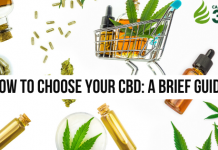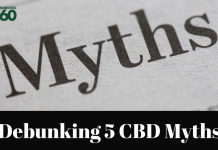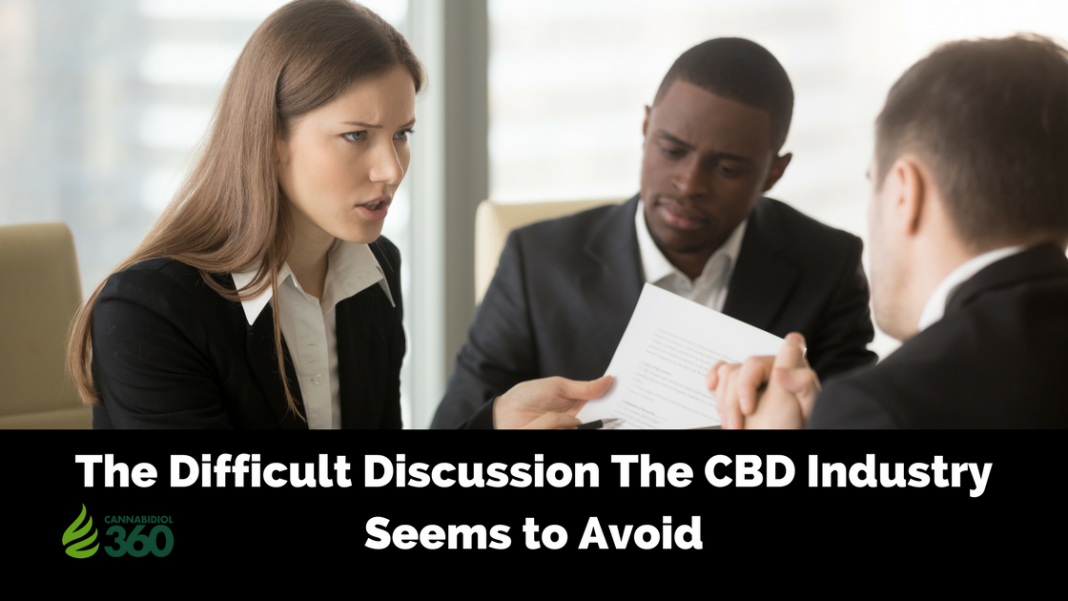
There is an unavoidable and almost nonexistent discussion that is going to haunt the CBD industry unless we confront it sooner than later.
Considering this, the potential regulations of CBD are rarely and hardly ever discussed due to many reasons but primarily because to discuss such a topic is troublesome, but primarily because it causes me to wonder, what will we do if one day, the storm comes? Failing to prepare is preparing to fail.
Besides 18 states installing specific guidelines on CBD, the rest of the CBD industry in the U.S. remains unregulated and the idea does not often seem to be something anyone wants to discuss.
Everyone has their reasons for avoiding the topic as it does not seem to be a major concern for all businesses or even those who should be most concerned about the potential for highly restrictive guidelines being enforced, the consumers.
The fact of the matter is that all it takes is one unfortunate incident to send the industry into a inescapable web of speculations, accusations and regulations.
CBD has proven to be somewhat of a miracle for so many, yet when something so helpful exists, it becomes identified as a risk for the authorities in office to continue allowing such products infused with CBD to flourish.
Why? It’s always the same answer. It’s the answer to 99 out of 100 questions — money.
Federal Regulations of Substances Have A Strict History

Altogether, 30 states along with Washington D.C. have all legalized cannabis on a medical or recreational level. Surely an unprecedented moment for the U.S. economy, as Americans adopt a new cash crop now that tobacco has reached a point of being illustrated as the most unsavory substance in all of God’s Green Goodness.
As marijuana, in general, it remains illegal federally. And the Drug Enforcement Administration, which enforces drug laws, even views non-psychoactive CBD as a Schedule 1 drug.
Just to put that into perspective, Cocaine and Crystal Meth are considered Schedule 2 Narcotics. Schedule 1 is the category that is supposed to represent the least beneficial drugs and most dangerous narcotics. Right. So, this makes no sense.
The fact that these current federal laws classify substances into categories that make no sense whatsoever is what worries me most. The FDA also has classified Tobacco Harm Reduction vaping devices that contain minor percentages of nicotine as tobacco products.
Why Would The Government Regulate CBD? How Can They?
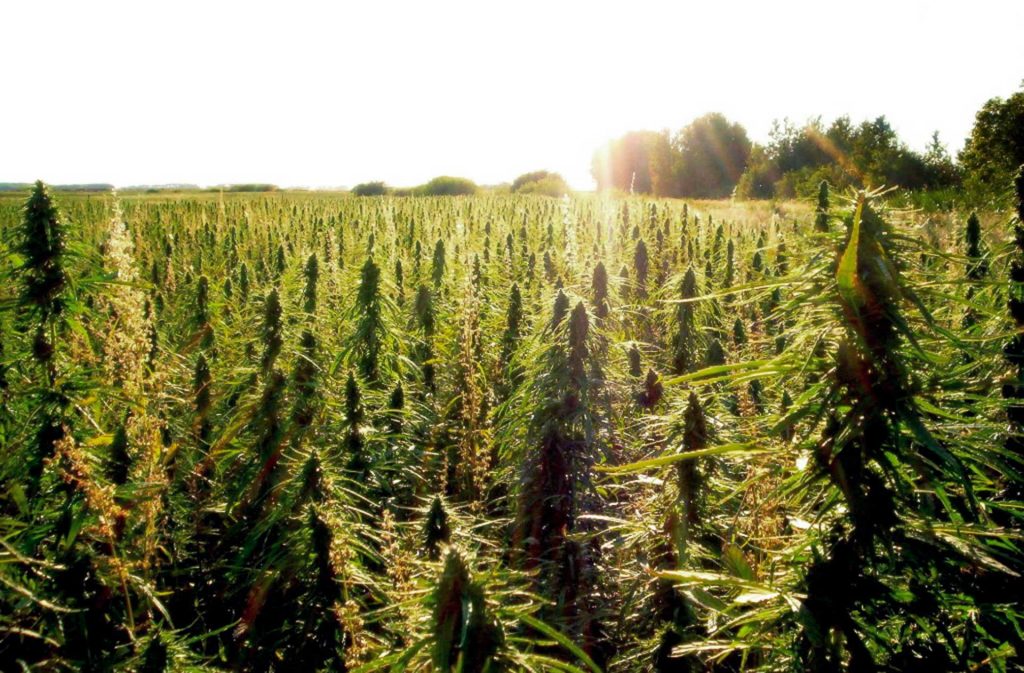
Again, the current drug classification system makes no sense. Nicotine is found to be present in tomatoes, cauliflower, potatoes and other vegetables and fruit, so what’s the next step with these consumer products — classify these as tobacco products as well?
If the current laws and regulations don’t seem to make much logical sense then why would we expect for potential regulations and laws that could be passed to be more logical? Because we like to think that we’ve progressed as a society in a much more practical way?
Whatever the reason is one thing is certain we are not in control and no one can predict what could possibly happen with potentially regulating CBD.
What I wonder is, if the potential FDA efforts by certain “regulators” are discussing that there is a vast distinction between industrial hemp and cannabis. After all, most CBD products being sold nationwide are derived from hemp, rather than cannabis.
Not to mention, U.S. Federal Legislation from 2014 known as the Farm Bill, basically allows the cultivation of industrial hemp once again in the U.S. and of course cannabis is legalized at the state level where in most cases, these laws were approved by the voting residents of those states.
Then, of course this reveals just how the potential for installing restrictive guidelines through regulation would be one huge mess.
Let’s consider some past scenarios, for instance, Oklahoma, Nebraska and some other shit-kickin state tried to sue Colorado when we first legalized recreational use by the will of the Colorado voters — these bordering states claims were that now there was more trafficking of marijuana across state lines, especially into their states.
Well, long story short, the Supreme Court tossed their case. Which means they glance it over and threw it out of the Supreme Court front entrance. See ya!
So, I’d be very interested to see anyone try to go after something like state legalized cannabis industries, which has been generating millions in tax revenue for Colorado, which is a state with an overall statewide population smaller than the Top 10 cities in America.
CBD Industry Regulations Would Be Too Messy to Attempt

Henceforth, this money-maker for private business and government (who collects double the taxes in CASH!), creates so many questions as to how in the hell they could implement the process of “installing limitation” on the cash-cow that the cannabis industry has become.
Of course, the CBD we are considering is the type extracted from the Hemp plant. However, CBD is also used in a wide variety of countless Cannabis-plant based products.
So, if government officials try to regulate CBD, then that would not only affect the expanding of the recently nationally legalized hemp industry, but also the regulated and legal state-level cannabis industry.
All things considered, with the involvement of all these industrial powers, attempting to install regulations on a natural occurring compound extracted from related, yet separate plants that are the focal point of two different industries all seems too messy.
Who the hell seriously wants to deal with that kind of complicated mess? The FDA is in over their head already with attempting to regulate the industry for vaping. It is highly doubtful anyone will even be allowed to rattle this cannabis and hemp cash flow.
Then again, we’ve seen crazier things happen. Vaping was growing at a rate faster than any industry in history until the FDA stepped in and practically outlined a situation that would have the authority to quickly shut everything down, but they failed to consider just how much modern emerging industries are fueled by innovation and naturally and quickly surpasses the linear nature of government regulations.
Often times new technologies move so quickly and develop so suddenly that government agencies cannot keep up — we are seeing this unfold in the vape industry as well as many others. Taking on cannabis and hemp would be very foolish and ill-advised.
Autonomous Regulation From Within The CBD Industry

Lastly, while surely no one wants to personally experience any harm from using CBD nor would we want to see anything like this occur to anyone else using CBD, then perhaps consumers should step up the charge on advocating for ensuring that the industry remains compliant.
Any sort of non-compliant business practices could be devastating to the industry since any sort of regulatory action to come down onto the industry would certainly become very intrusive, and as a result businesses would close, jobs would be lost, income would dry up and even more negative outcomes would follow.
Worst of all, those consumers with previous day-to-day pain and suffering may be forced to halt the use of CBD due to the lack of options and dwindling CBD supply. No longer would people enjoy the benefits of CBD altogether.
If safety standards are not closely followed and respected, then this will open up the concept for more potential overreach from external forces as a possible outcome.
However unpleasant it is to think about, the future could surely result in some form of Federal Regulations being implemented, it is absolutely something logical we need to reflect on and take into full consideration.
Therefore, the CBD community should be engaging in this discussion more. Even though regulations are quite scary since they are very real, this doesn’t mean they will occur and it does not mean we should not prepare.
Potential regulations could be too messy to apply, then again life, in general, has also been characterized as being extremely messy.
One particular Grad School Professor I had once told me, “Life is messy.” Thus, it is undeniable just how much this makes sense when reflecting on such a concept.
So, while operating in the CBD industry, it is imperative that we remember how we have a responsibility to remain organized and keep it clean. It’s the way of life.

